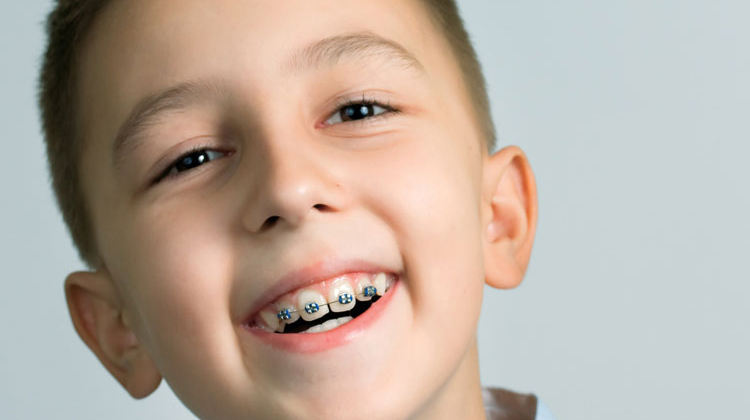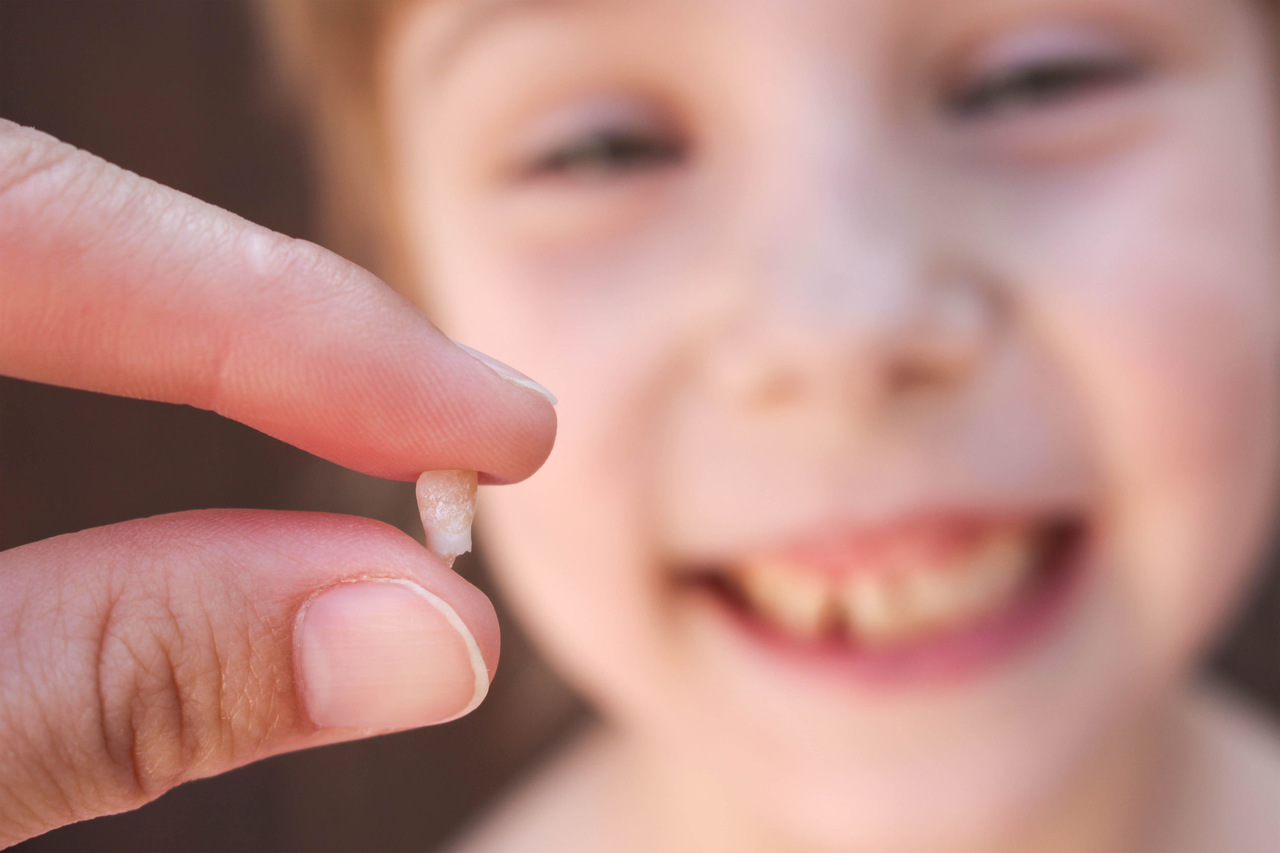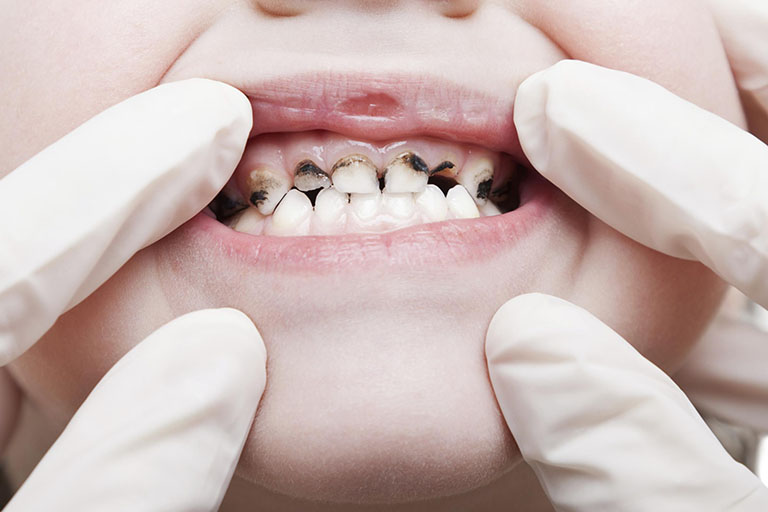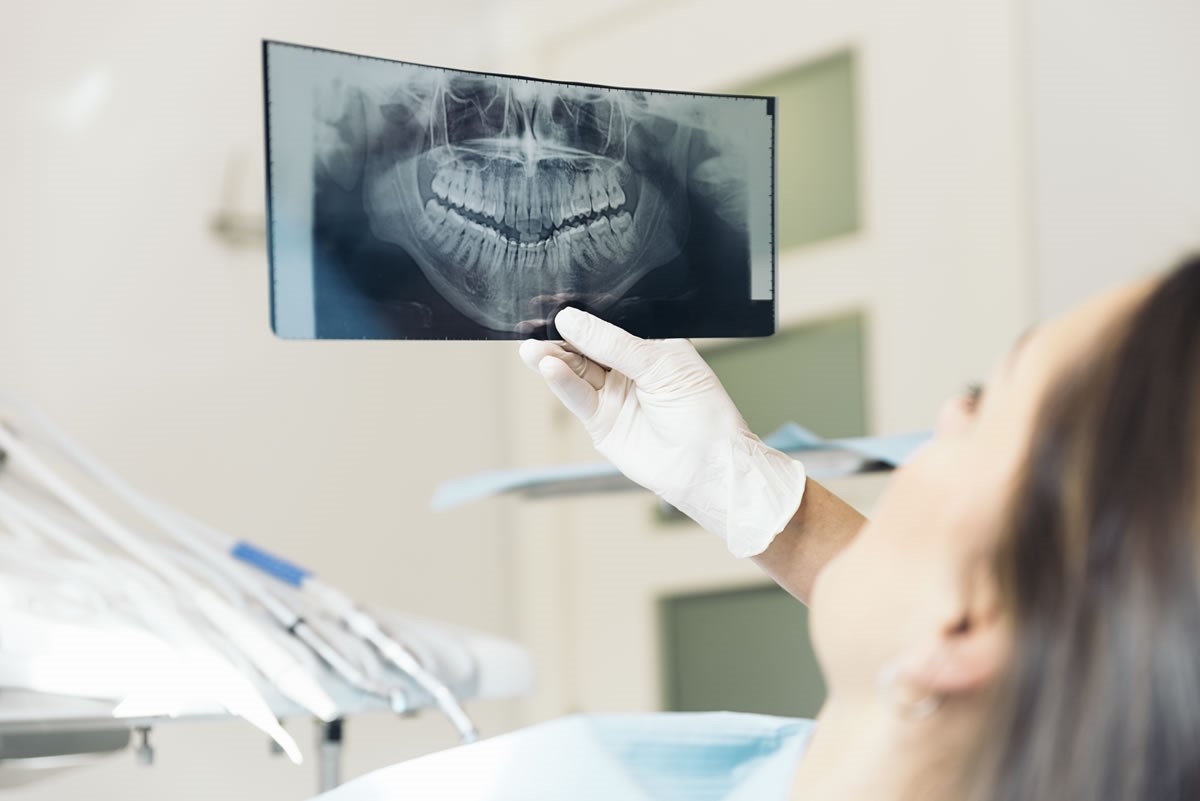Taking care of children’s oral health is a vital part of ensuring their overall well-being. Pediatric dental check-ups play a key role in the early detection and prevention of dental issues, helping children maintain strong teeth and a bright smile. So, how often should kids visit the dentist? Let’s explore this article from Amanda Dental Clinic!
When Should Children Have Regular Dental Check-ups?
Experts recommend taking your child for a dental check-up within 6 months of their first tooth appearing, or by their first birthday at the latest. During this visit, the dentist will evaluate the risk of tooth decay, provide guidance on feeding, proper oral hygiene, and address common issues like teething, pacifier use, or thumb-sucking. These early visits help familiarize children with the dental environment and make them more comfortable around dentists.
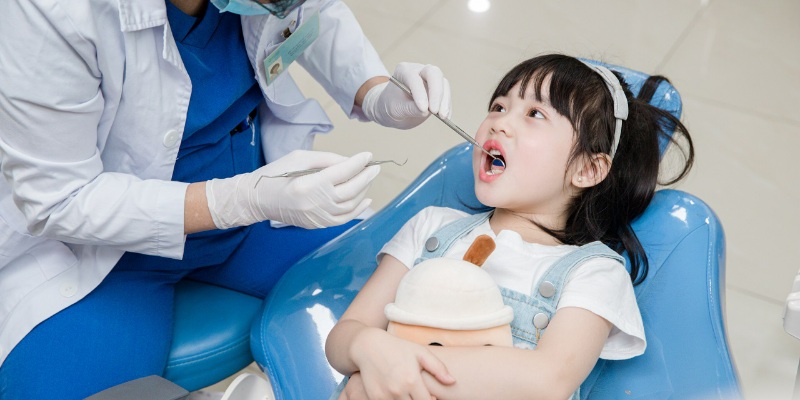
Regular dental check-ups for children between the ages of 6–12 help prevent oral health issues during the transition from baby to permanent teeth. Dentists may suggest dental sealants to prevent decay-causing bacteria from settling in tooth grooves. Around age 7, your dentist may also evaluate for orthodontic concerns. Early orthodontic intervention can guide jaw development and ensure a healthy, beautiful smile in the future.
The Role of Regular Dental Check-ups for Children
Pediatric dental experts strongly recommend regular dental check-ups for children every six months. These appointments offer several important benefits:
Prevention of dental diseases: Routine check-ups help detect early signs of cavities, gingivitis, and periodontal disease for timely intervention. Dentists clean teeth and remove plaque and tartar—major causes of dental problems.
Monitoring oral development: Dentists track tooth eruption and replacement to spot issues like misaligned, impacted, missing, or extra teeth—especially crucial during the tooth transition period.
Oral hygiene education: Dentists guide both children and parents on brushing, flossing, and selecting appropriate toothpaste to build good hygiene habits.
Early detection and treatment of bite issues: Dentists can identify problems like overbite, underbite, or misalignment early and recommend orthodontic solutions, saving time and cost.
Steps in a Routine Dental Check-up for Kids
Routine dental visits are essential to your child’s oral health. Here’s what typically happens:
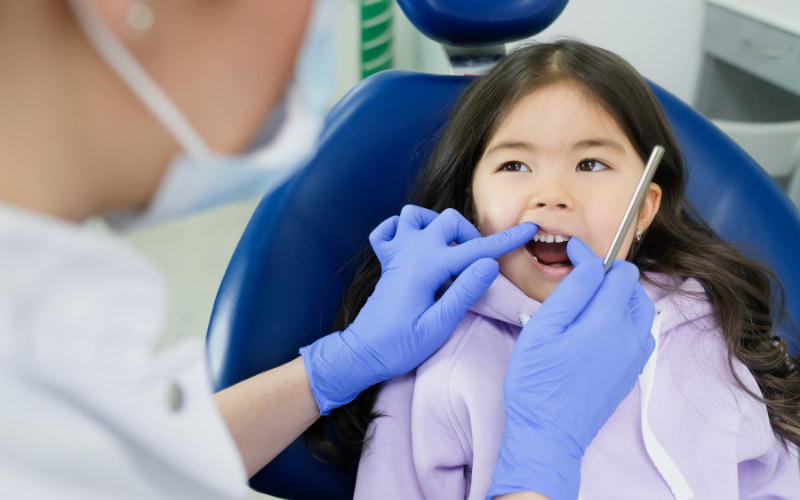
- General examination: The dentist checks the gums, tongue, palate, and soft tissues for signs of infection, swelling, or ulcers.
- Tooth inspection: Each tooth is examined for decay, plaque, or development issues. Bite alignment is also assessed.
- Cleaning: The dentist removes plaque and tartar to prevent cavities and gum disease.
- X-rays (if needed): In some cases, X-rays help evaluate teeth and jaw structure more thoroughly.
- Advice and guidance: Parents receive tips on oral care routines and healthy diets to protect their child’s teeth.
- Next appointment: Regular visits every 6 months are recommended to monitor ongoing development.
Tips for Your Child’s First Dental Visit
The first dental visit is foundational to lifelong oral health habits. Here’s how to prepare:
Choose the right dentist
The dentist not only examines and treats your child but also helps instill positive habits. Get referrals from family or friends, or visit clinics in person for consultations.
Prepare relevant information
Ensure your child is well-rested and calm. Make a list of your child’s current medications and questions for the dentist. Check with your insurance provider for financial support options.
The first visit
It should occur by age 1 or within 6 months of the first tooth. The appointment lasts 30–45 minutes and includes a full oral check-up. Light cleaning and polishing may also be done. The dentist will guide brushing and flossing techniques and discuss fluoride use.
Subsequent visits
Children need biannual check-ups. Some dentists may recommend more frequent visits (every 3 months) to build comfort and monitor development.
Home Care for Children’s Teeth
Maintaining oral hygiene at home is key. Here are some tips:
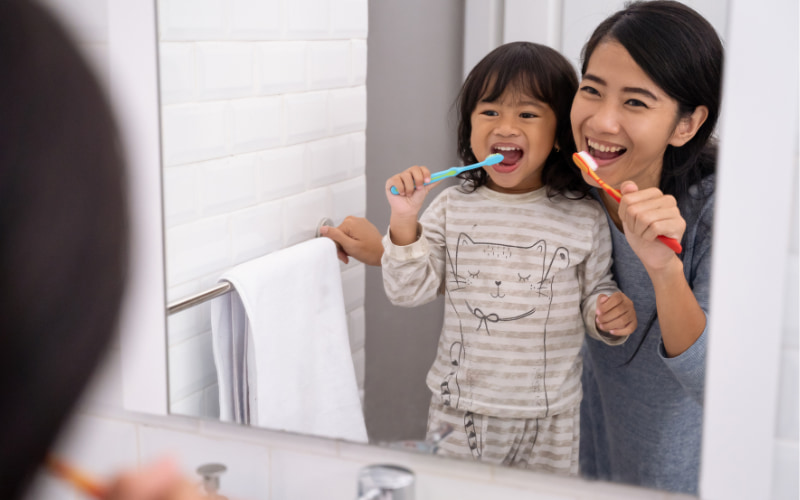
- Before teeth erupt, clean gums with a soft damp cloth.
- Once teeth appear, use a soft brush and a grain-sized amount of fluoride toothpaste. After age 3, switch to a pea-sized amount.
- Avoid bedtime bottles of milk or juice to prevent bottle decay.
- Help your child brush until at least age 7 or 8. Let them watch and mimic your brushing habits.
- Limit sweets and sugary drinks. Encourage eating whole fruits instead of juice for natural fiber and reduced sugar contact.
We hope this article has helped you understand the importance of regular dental check-ups for children. If you notice any dental issues, consult your dentist promptly for early care and treatment.




